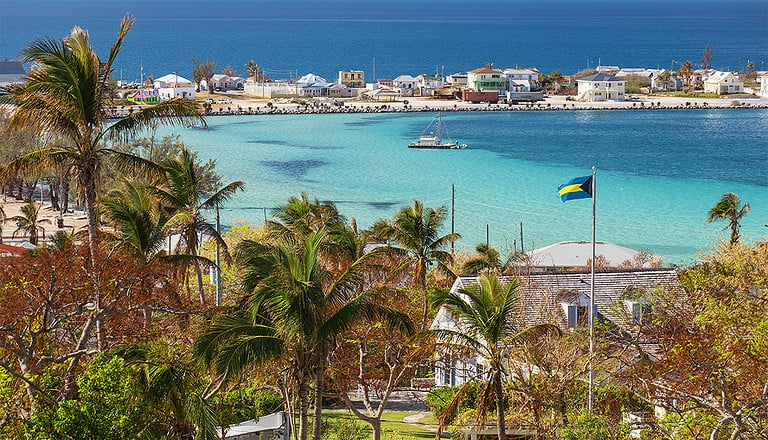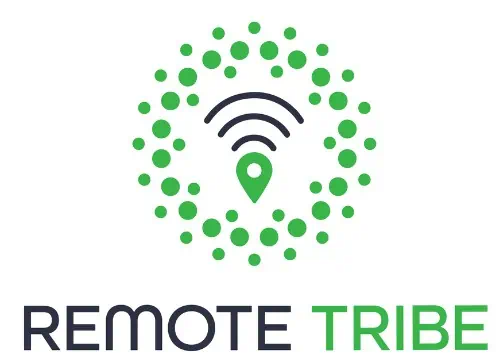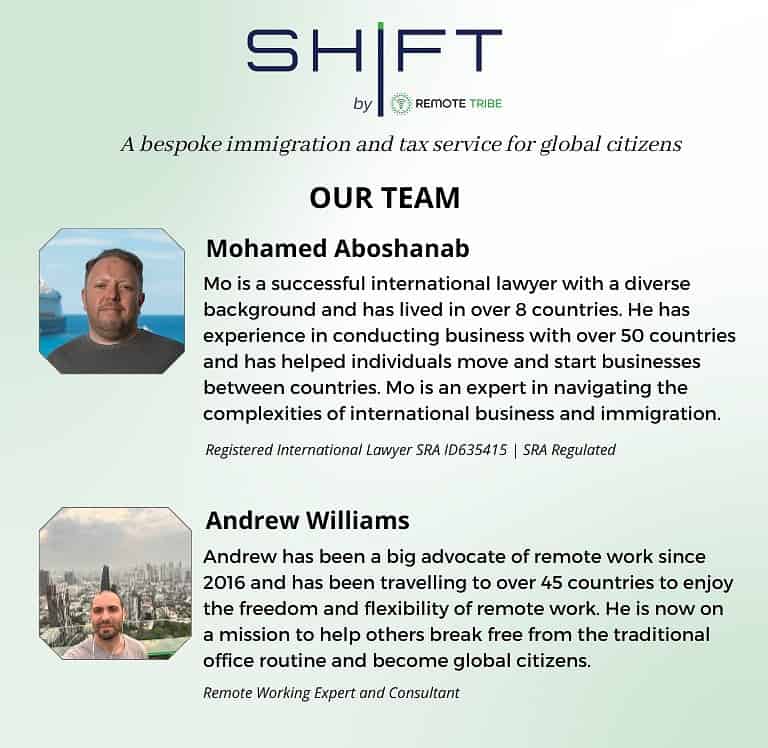In this blog post, we’ll delve into some of the most popular options for individuals engaged in freelancing or aspiring to establish their own company while seeking the advantages of operating in a low-tax jurisdiction.
We’ll explore various strategies, structures, and countries that can provide favorable tax environments and potentially optimize financial outcomes for freelancers and entrepreneurs alike. By understanding these options, you’ll be better equipped to make informed decisions that align with your business goals and financial aspirations. So, let’s dive in and uncover the possibilities that await in low tax jurisdictions for freelancers and aspiring business owners.
But first, a few things about our team and people involved in this research.

Ryan Mendonca
Ryan is a Digital nomad lawyer trying to revolutionize legal services for startups, Digital nomads, and solopreneurs across the world. He is also the founder of your Virtual Legal Council.

Andrew Williams
Andrew has been a freelancers digital nomad for more than seven years and worked from over 40 countries. He is know on a mission to help people ditch the office either by starting their own business or finding a job...and optimize their taxes too!
The UAE, Singapore, and the US are time-tested jurisdictions for setting up a corporate entity.
These are the best three jurisdictions for setting up a corporate entity: the UAE, Singapore, and the US when it comes to low bureaucracy and low or no taxes, but it’s important to consider other factors such as the nature of your business, target market, industry regulations, ease of doing business, access to talent, political stability, and proximity to markets.
Each jurisdiction has its own unique advantages and disadvantages, so thorough research and analysis are necessary before making a decision. Additionally, it’s recommended to consult with legal and financial professionals who specialize in international business to ensure compliance with local laws and regulations. By carefully considering all relevant factors, you can make an informed choice about the best jurisdiction for setting up your corporate entity.
1. United States

Many noncitizens are unaware that they may start a business in the United States, but there are certain restrictions on how they can do it.
For a small remote business or freelancer, it’s recommended you go with an LLC company. It will cost you about 250 USD to open one, and the process is pretty straight forward. Most people use known third-party brokers like Doola and Tailor Brands.
If your business grows and needs to raise funds, a Delaware C Corp or a Wyoming C Corp are the two best options. C Corp. offers more protection for investors. People who want to raise funds in the US should form a C-Corp in the USA.
If you are interested in opening up an LLC company in the USA (even if you are not a US citizen), then head to this article, where we explain in detail the steps for creating an LLC, the different options you have to open one, and much more.
2. United Arab Emirates

There are about 45 free zones in the UAE. You would want to narrow down which free zone works best for you so do some research about the.
In the UAE, there is currently no corporate tax, effective until 2023.
In a couple of months, there is going to be a 9% tax effective rate for companies with over $100,000 in annual income. If your turnover is under 100,000 USD in that entity, then their corporate tax rate won’t apply to you.
9% is probably one of the lowest rates in low-tax jurisdictions that you can get. Accessing banking in the UAE can be challenging, and in order to do that, you’ll have to become a resident after setting up the company to get the bank account. If you want to read more about banking in the UAE, follow this guide.
There is no personal income tax in the UAE. There’s never been one. Besides VAT, you don’t pay any personal income tax.
3. Singapore

Singapore is a very investor friendly jurisdiction for startups and investors. It’s a great jurisdiction if you’re starting a startup, and raising funding. There are a lot of taxes that aren’t there for Singapore entities or Singapore investors.
Singapore has a low tax rate of 17% which is a pretty good advantage.
However, you need to hire a Singaporean national in your company, and the minimum wave in Singapore is much higher than in any other Asian country, so you have to do the math on that and see how much it would cost you per year to keep that employee.
The benefits of having a Singapore entity are that it’s in a politically strong and stable economy as well. They do have a low tax rate of 17%. The negative is that it can be slightly more expensive to incorporate an entity there.
4. Costa Rica vs Bahamas

We’re going to compare Costa Rica and the Bahamas in terms of taxation, banking, and some benefits for each of them. The only way it makes sense is if you, as an entrepreneur, have different types of businesses. It only makes sense to create holding companies in these regions if you are turning over a lot of money and want to consolidate them.
The Bahamas has a great corporate tax rate of zero. The best thing about it is that the Bahamas are great if you have a lot of intellectual property.
Costa Rica has multiple Fortune 500 companies that have their tech support or customer support based out of Costa Rica. The other advantage of having a Costa Rican company is that it’s easy to incorporate. It only takes anywhere between two and four weeks.
5. Ireland

Ireland has one of the lowest corporate tax rates in the European Union.
Ireland’s tax rate is 12.5%, Ireland’s low tax rate, combined with its extensive double taxation treaties and the presence of major multinational companies, has positioned the country as an attractive destination for businesses and foreign investment. . A lot of Fortune 500 companies have their entities set up in Ireland. Ireland has signed multiple double taxation treaties with over 70 countries.
The presence of numerous Fortune 500 companies in Ireland has not only contributed to the country’s economic prosperity but has also led to the development of a skilled workforce and a thriving ecosystem of innovation and research. The influx of foreign investment has supported the growth of various industries, including technology, pharmaceuticals, and financial services.
6. Estonia
Estonia is one of the best jurisdictions for digital nomads and remote workers because it has this e residency program. It’s Rolls-Royce jurisdiction when it comes to crypto. It does have a corporate tax rate of 20%, which is relatively high.
There’s no minimum requirement for you to live or reside in Estonia. For most companies, especially if you form a branch or a foreign entity, you are subject to 0% income tax. You’ll essentially be able to reinvest all of your profits from your Estonian company. Read more about Estonia’s E-residency and company formation here.
7. Malta
Maltese-source income and capital gains are taxed at 35%, whilst foreign-source income produced in Malta is taxed at a flat rate of 15%, with the option of claiming double tax relief. There is a €15,000 minimum annual tax charge.
Non-Maltese-sourced income earned outside of Malta is not subject to Maltese income tax.
There is no tax on capital gains received from sources other than Malta. Income earned in Malta and capital gains achieved in Malta would be taxed at a higher rate of 35%.
Applicants will be eligible for double taxation exemption on income earned outside of Malta. They have 2 types of residency programme you can read about here.
8. Luxembourg
Luxembourg’s corporation tax system includes a number of rules and incentives to help small firms. The basic corporate income tax rate is 24.94%, although depending on their size and activity, small enterprises may qualify for lower tax rates or exemptions.
Micro-enterprises with an annual turnover of up to €30,000 are eligible for a simplified tax system in which they pay a set yearly tax of €500 instead of standard corporate income tax.
Startups linked with recognized Luxembourg-based accelerators can benefit from benefits such as a 50% tax exemption on taxable income for up to ten years, providing them with critical help during their early stages.
Luxembourg provides an appealing intellectual property tax framework for small firms involved in intellectual property activity. This regime provides for an 80% partial exemption on net income earned from qualifying IP assets, resulting in a 5.84% effective tax rate.
Small firms can take advantage of deductions to decrease their taxable revenue. These deductions cover a wide range of charges, including R&D costs, training costs, and professional fees.
Small firms may benefit from streamlined reporting requirements for tax purposes, including simplified VAT reporting for those with turnovers below a specific threshold, to ease reporting and compliance.
These policies aim to reduce the tax burden on small firms in Luxembourg, hence supporting growth and boosting entrepreneurship in the nation.
9. Gibraltar
Gibraltar has a favourable tax environment for small businesses. The corporation tax rate is 10%, and some forms of revenue are excluded. Gibraltar is not a member of the European Union’s VAT system, hence, the usual VAT rate is 0%.
Small businesses must register and comply with tax requirements, which include filing yearly tax reports. Gibraltar does not levy withholding tax on non-resident profits, interest, or royalties.
Other taxes and fees may apply, such as import tariffs and stamp duty. It is recommended that you speak with a tax specialist and remain up to speed on the newest legislation. More on Gibraltar tax system for small companies here.

![Global Nomad Havens: Unveiling Tax-Friendly Countries for Freelancers and Remote Entrepreneurs [Pros and Cons] low tax countries for freelancers and entrepreneurs](https://www.remotetribe.life/wp-content/uploads/2023/06/Freelance-best-jurisdictions.jpg)

![Global Nomad Havens: Unveiling Tax-Friendly Countries for Freelancers and Remote Entrepreneurs [Pros and Cons] best coliving spaces in paris](https://www.remotetribe.life/wp-content/uploads/2023/06/Coliving-in-paris-150x150.jpg)
![Global Nomad Havens: Unveiling Tax-Friendly Countries for Freelancers and Remote Entrepreneurs [Pros and Cons] best cities for digital nomads remote south america](https://www.remotetribe.life/wp-content/uploads/2023/07/Best-cities-DN-South-America-2-150x150.jpg)





